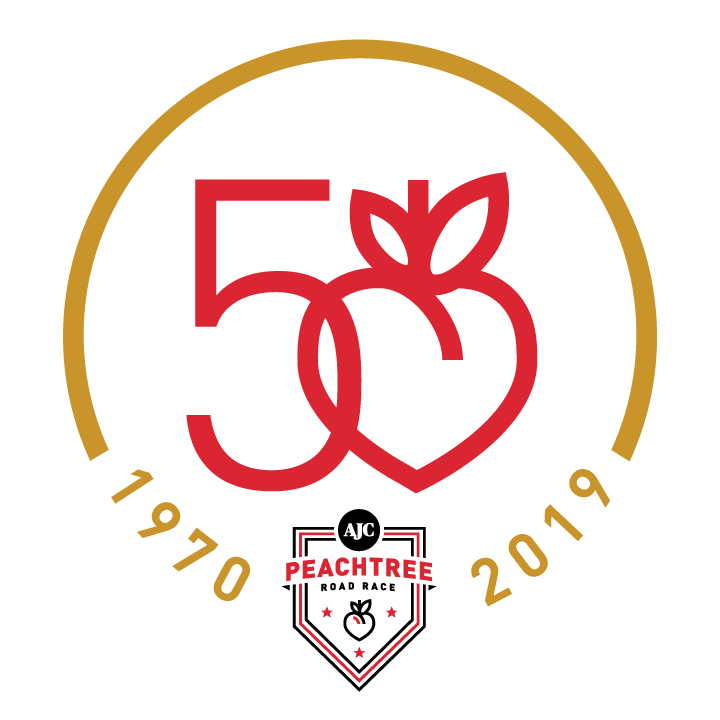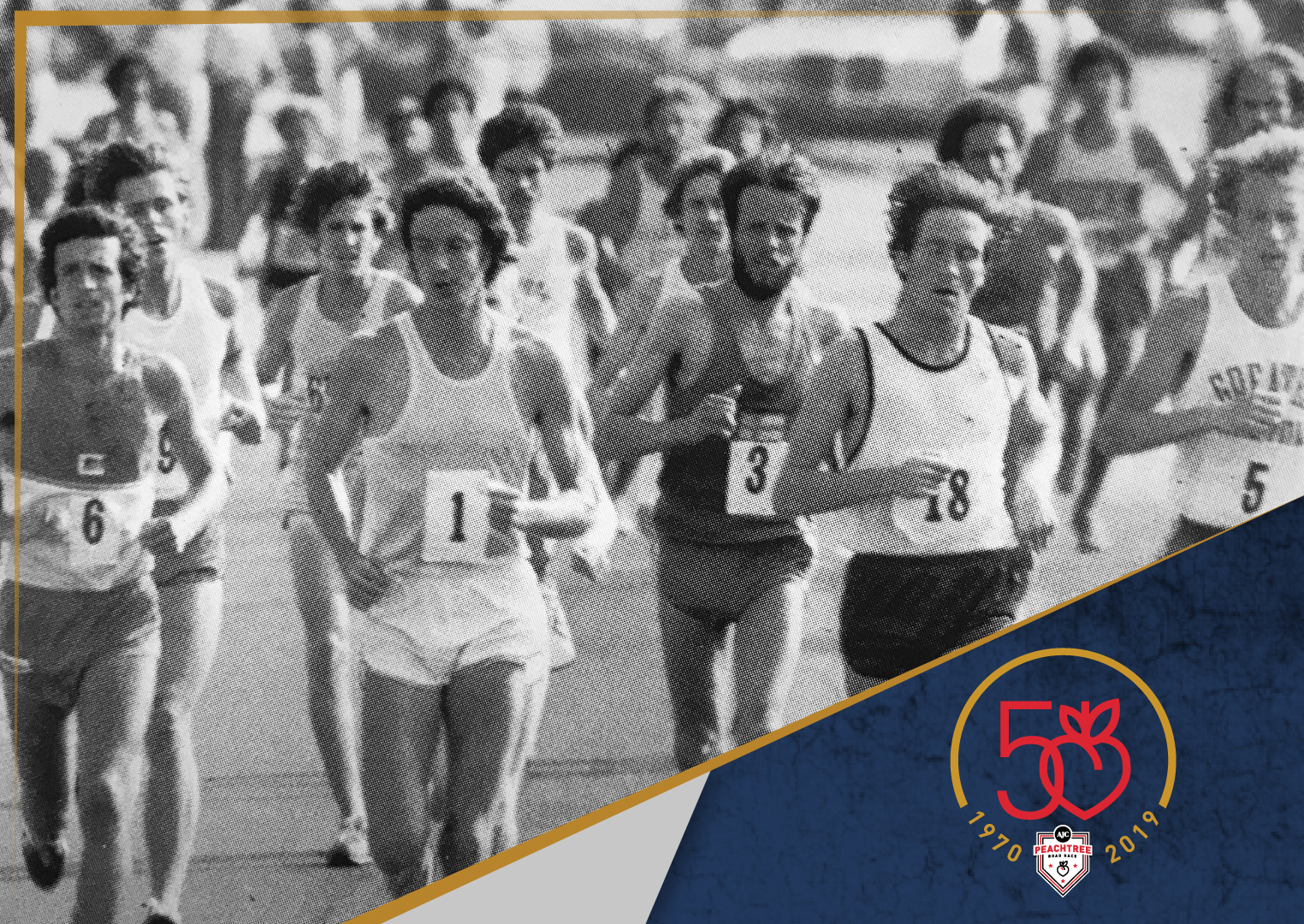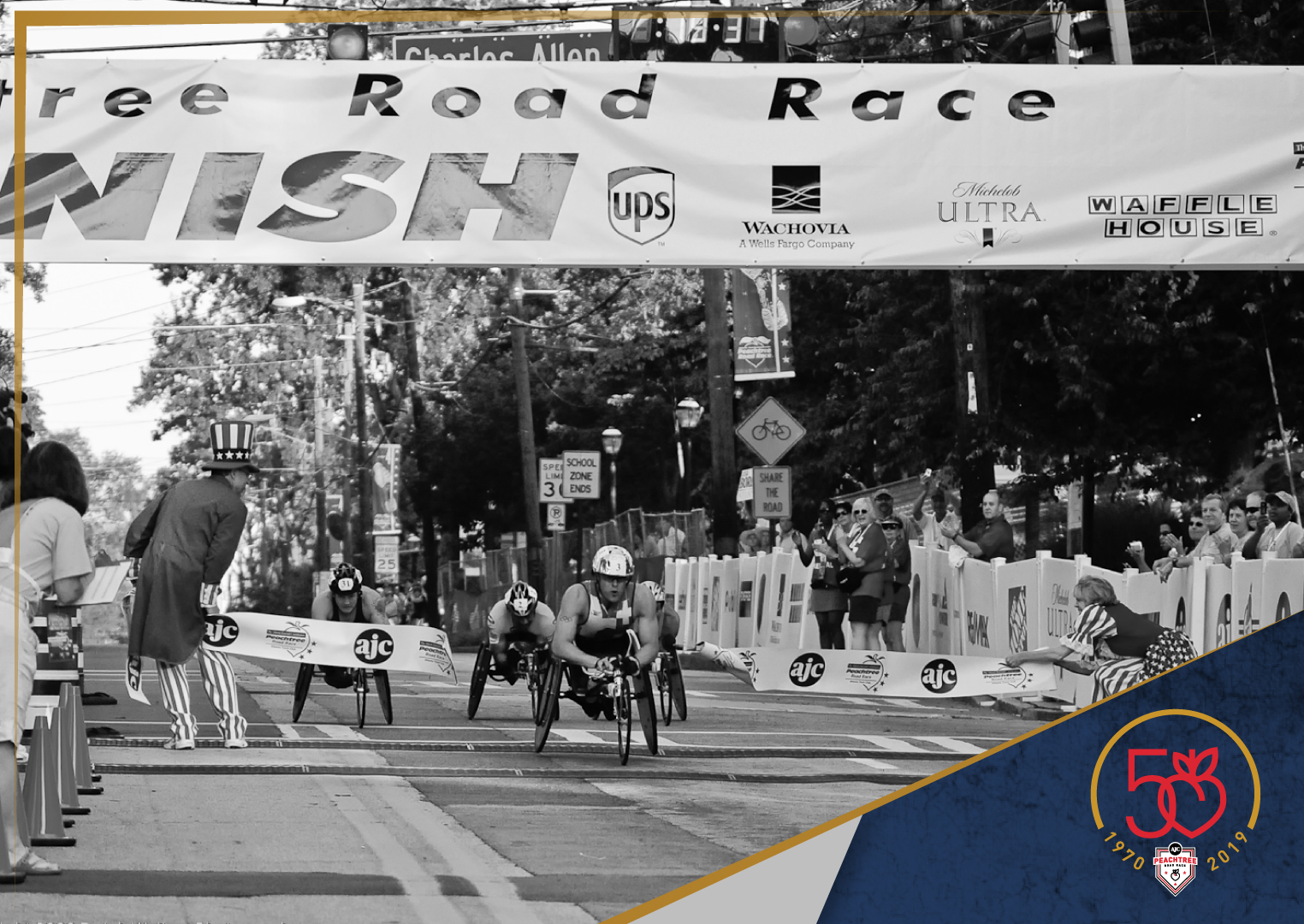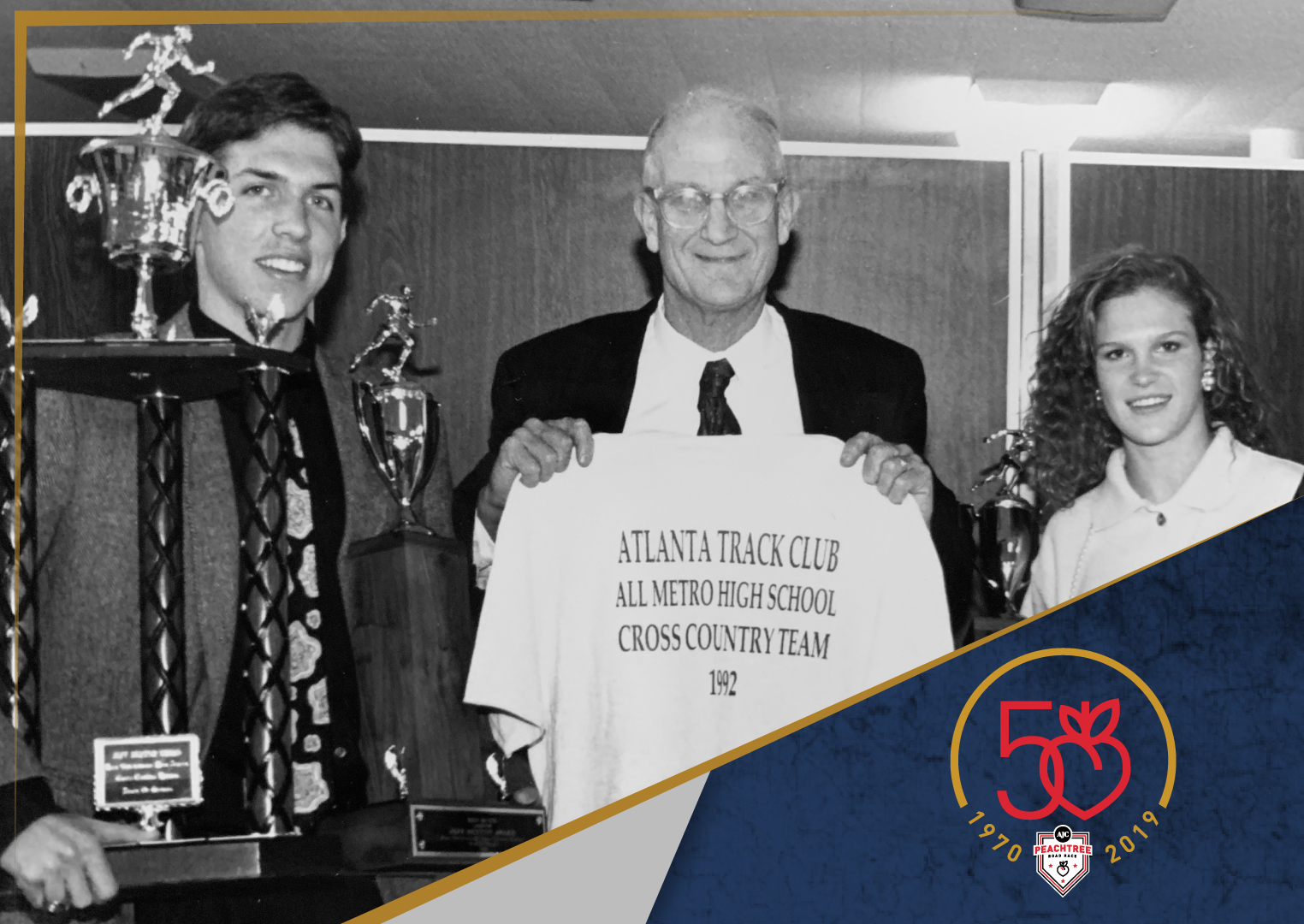Employee No. 1

It’s not an overstatement to say that the AJC Peachtree Road Race changed Bob Varsha’s life. He can trace his successful broadcasting career, longevity as an Atlanta resident, circle of friends, even his 35-year marriage back to the race. In the Peachtree’s early years, a young Varsha was one of the key figures in shaping its future. The race returned the favor by shaping his.
Varsha, who many know as a motorsports broadcaster for TBS, FOX, CNN and ESPN, was the first paid employee of Atlanta Track Club, hired by the volunteer Board of Directors in 1978 to be race director of the Peachtree. A young attorney and talented runner, Varsha was charged with adding needed structure to the rapidly growing race in the midst of the running boom of the 1970s.
Varsha, now 67, came to Atlanta in 1973 to attend law school at Emory University. A standout runner at Dartmouth College, Varsha was nonetheless prepared to put his harrier days behind him and focus on the law. “But lo and behold, there was a running club,” he recalled. Instead of hanging up his shoes, Varsha laced them up to join Atlanta Track Club runners for daily runs and grueling workouts.
“We were just a bunch of single young guys having a good time running and pushing each other,” he said.
Varsha and high school friend Karl deSantos lived in a small carriage house that deSantos referred to as “running central,” living the life of runners in the ’70s.” “Everybody was running,” said deSantos. “Anybody that had talent. You got to be good. Then you got to be better. Then you got to be great.”
Varsha’s running resume in the early to mid-’70s backs up his roommate. He finished 11th in the 1974 Peachtree and 6th in 1975. In 1976, three years after he had planned to leave running behind, Varsha finished 6th in the 1976 Olympic Team Trials – Marathon in Eugene, Oregon with a time of 2:15:50, three spots ahead of fellow Atlanta runner Jeff Galloway.
But he was done competing in the Peachtree, at least for the time being. Citing the 1,159 finishers in the 1975 race, Varsha said he decided it was “no fun being in a crowd like that,” and began to volunteer instead. The Club, as Varsha puts it, was “still just a cardboard box with a checkbook and a bunch of cones in the back of somebody’s car.” He worked wherever he was needed, including one year tearing up shopping bags at the start line to use as race numbers for the larger-than-expected crowd.
In 1977, largely due to an elite field that included Olympic gold medalist Frank Shorter and fellow Olympians Bill Rodgers, Lasse Viren and Don Kardong, the race soared in popularity, drawing 6,500 runners.
“Road racing exploded. Everyone wanted to run. Jim Fixx wrote his books and we had to change,” Varsha said, referring to the author of “The Complete Book of Running,” credited with starting the fitness boom. “We knew we needed to get organized. There were more and more events, more and more people wanting to run, [with] more and more pressure to get bigger.”
Varsha was chosen by Atlanta Track Club’s board to lead the charge for the 1979 race. He said it was partly because he knew the race so well, plus the fact that he didn’t have a family to go home to at night.
He did, however, have some lofty racing plans: Varsha took the job thinking he could direct the race while training for the 1980 Olympic Trials. He also took it without telling the law firm that employed him, instead opting to attempt both jobs. The jig was up fairly quickly, and Varsha was soon let go. “I was a crummy lawyer anyway,” he laughed.
On March 24, 1979, the Club invited its fewer than 1,000 members to its first formal office, on the second floor of 3324 Peachtree Road, where Varsha had set up shop. It shared a hall with a beauty school and an office rented by two of Varsha’s running buddies who were attempting to sell a new brand of running shoe called Nike. According to Julia Emmons’ 1989 “History of the Atlanta Track Club:”
The room was down a long corridor. When one finally found it, one expected “Sam Spade, Private Eye” to be on the glass pane above the door handle. Varsha soon filled the space with three second-hand desks, two full-sized tables (one with three legs) and shag carpeting of questionable taste and dubious origin.”
Varsha quickly hired two secretaries to help give shape to what he called the “amorphous mass” that was the Peachtree. He’s careful to point out that all the right experts were already involved in putting on the race; he was just there to put the puzzle pieces together for the volunteers who had full time jobs elsewhere. Tasks he took into his own hands included building the race’s relationship with city and handling the elite athlete field.
The latter task did not come without controversy. Prize money was not openly awarded in the “amateur” sport of road racing until 1981; before that, top athletes were nevertheless often compensated by under-the-table appearance fees. Atlanta Track Club refused to do so. Varsha recalled a tense conversation with Craig Virgin, who won his first Peachtree in 1979 and wanted to be compensated for his trip. The race director wouldn’t budge. (Virgin would go on to win twice more, in 1980 and 1981, and still owns the fastest time (28:04) ever run by an American in the race.)
Varsha understood the importance of his role. “One mistake, one misstep can end the race. This race was built on humble beginnings and hard work and it’s fragile. So you had to be vigilant.”
And there almost was a mistake. When the coveted finisher’s T-shirts arrived, Varsha said, the design looked vastly different from the one submitted. “It was universally loathed,” he said. With just weeks until the race, Varsha thought they’d have to hand out the shirts as they were. But the Club’s board and the AJC decided drastic – and costly – measures were warranted, and a new vendor was hired and tasked with reprinting all the shirts.
In 1979, more than 20,000 people registered for the AJC Peachtree Road Race, keeping the small Atlanta Track Club office full of entry forms and leaving Varsha and his two secretaries to turn away the thousands more who begged and pleaded for a spot on the start line. Varsha recalled the story of one man who wrote in to say that his application had been returned. Varsha quickly discovered that the stamp cancellation had been drawn in pencil. When he erased the drawing and accused the man of mail fraud, the embarrassed runner recanted.
Despite the record field, the race went smoothly. “He was all into it,” said deSantos. “Bob’s an Ivy Leaguer, a law school graduate. He’s got the right stuff. He knows how to surround himself with the right people.” Varsha was still a good runner, but his elite days were over. He did not, as it turns out, have time to train for the 1980 Trials. He thought his race directing days were over, too: Varsha left the Club in 1980 to go back to the law after a year at the helm.
In 1981 the Peachtree came calling again in yet-another way when Atlanta-based TBS network, planning a national broadcast, asked Varsha to be in the announcing booth despite having no TV experience. After the race, Varsha assumed his short broadcasting career was over; instead, it was just beginning. Weeks later, TBS asked him to audition for a part-time news and sports job. He hasn’t walked away from the microphone since, becoming a full-time sportscaster hosting national and international broadcasts of track and field, skiing and gymnastics. Varsha is best known as a motorsports broadcaster, which he still is today.
But that doesn’t mean he was finished with the Peachtree. When his successor, Royce Hodge, resigned in February of 1983, Varsha was brought in to pinch-hit for the race, and he’s stayed connected, volunteering in various capacities over the past 35 years. The Long Island transplant has never left Atlanta, living in the same neighborhood where he landed with diSantos in 1973 and marrying a woman he met through the two Nike guys down the hall from that first office.
“Peachtree really thrust me deep into what goes on in this town,” he said. “It was what made me part of Atlanta sooner and more intimately than I would have been otherwise.”






